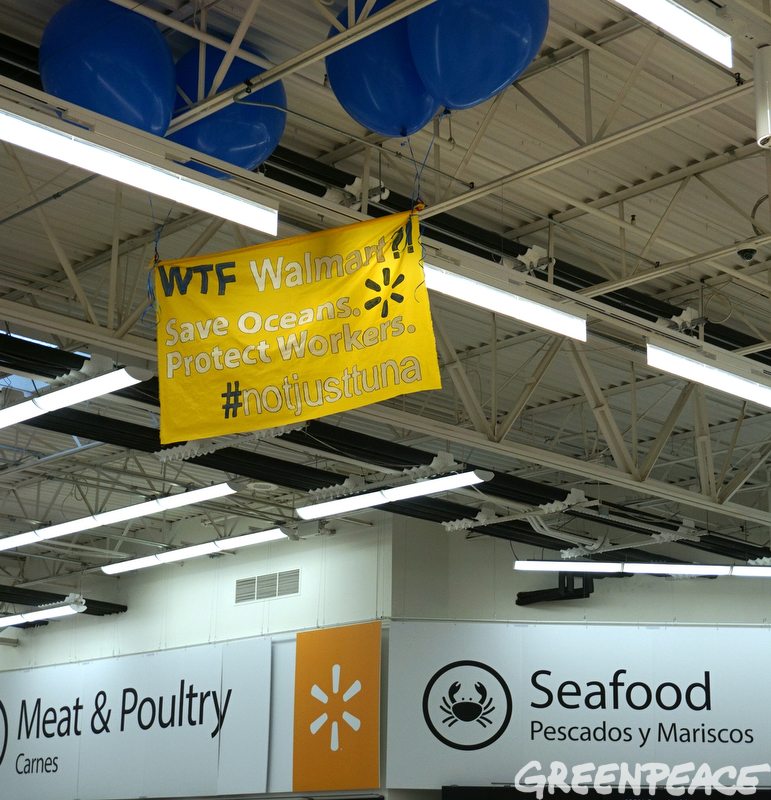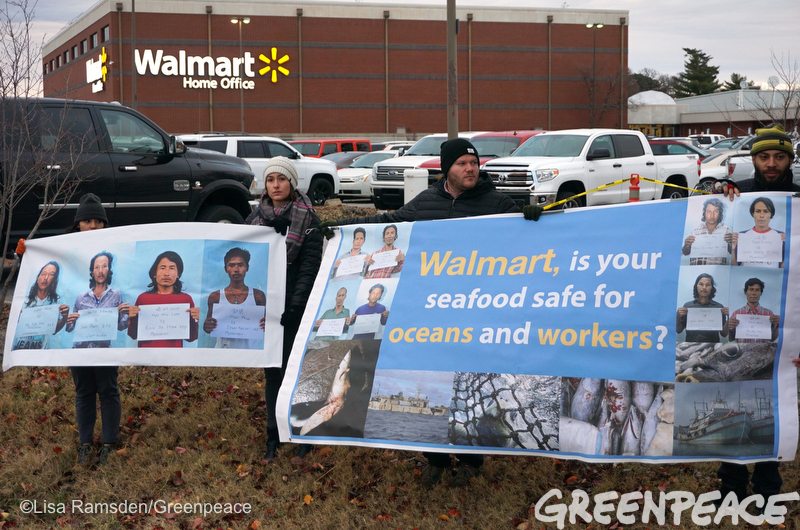Outside of Walmart’s headquarters, activists displayed images of seafood industry labor abuse survivors and impacted marine life on banners asking the company, “Walmart, is your seafood safe for oceans and workers?”
A similar message was also deployed on a balloon banner inside Walmart’s first-ever store a few miles away. We distributed fliers on Walmart’s troubling record throughout its hometown and removed Great Value canned tuna from store shelves, putting it inside a closed metal cage.
Greenpeace Activists took to the streets in #Bentonville today demanding that @walmart save oceans and protect workers. #notjusttuna pic.twitter.com/4zA8sG2mTs
— Greenpeace USA (@greenpeaceusa) December 7, 2016
Meanwhile, Greenpeace Canada launched Great ValueS, a spoof canned tuna product, complete with transit ads, mobile billboards, and promotion in five cities across the country. Great ValueS is the product over 80,000 consumers want to see, responsibly sourced tuna.
Buzz is growing today for #GreatValues tuna. Check out #WalmartCanada for more…growing demand for responsibly sourced tuna #merryandbright pic.twitter.com/ZMFoSF3HLg
— Walmart Great Values (@WMGreatValueS) December 12, 2016
Walmart is the largest retailer in the world and a major buyer and seller of seafood. While the company talks a big sustainability game, its seafood sourcing policies and practices are failing our oceans, seafood workers, and its customers.
Walmart’s Great Value canned tuna leaves a trail of destruction from sea to shelf, and customers deserve to know what they are getting when they reach for a can of Great Value tuna.
Check out some of our favorite photos from the activities over the past week.

Greenpeace activists visit a Walmart store in Bentonville, Arkansas on December 7, 2016. They deployed a balloon banner and cleared some tuna cans off the shelves as a message to the company and shoppers that Walmart can do more to protect the oceans and workers.

Great ValueS spoof canned tuna. The product over 80,000 consumers want to see from Walmart. Photo by Greenpeace Canada
Walmart is the largest retailer in the world and a major buyer and seller of seafood. While the company talks a big sustainability game, its seafood sourcing policies and practices are failing our oceans, seafood workers, and its customers.
Seafood workers and our oceans can no longer afford empty promises and delays from the world’s largest retailer. Either the company decides to embrace its so-called values by making meaningful change, or we will continue to hold them accountable.
Tell Walmart to save oceans and protect workers.






